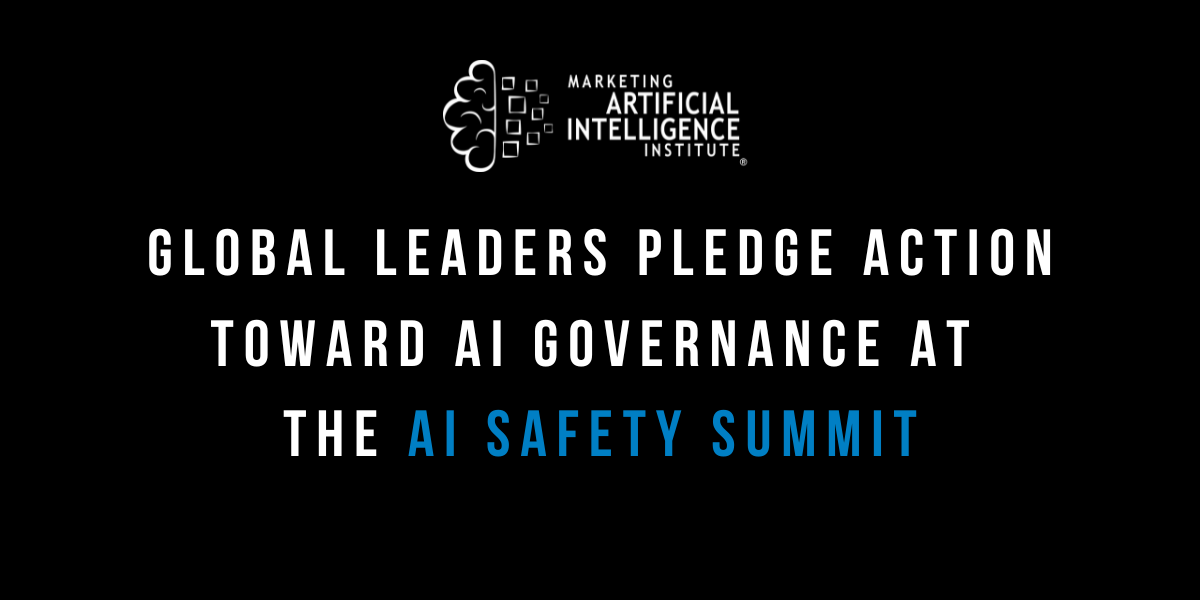The AI Safety Summit, hosted at Bletchley Park, Birmingshire by the UK on the 1st and 2nd of November, brought together representatives from 28 countries, a diverse array of technology companies, and scholars to address AI’s “opportunities and risks.”
Conversations at the summit centered on examining the risks associated with AI and how these risks could be addressed through international action.
The summit aimed to address five key objectives:
- Create a shared understanding of risks brought by frontier AI and address needs for urgent action
- Foster “international collaboration” on AI safety while encouraging domestic and international policy framework
- Create an understanding and path for how organizations can encourage AI safety within their operations
- Find priority areas for AI safety research and development
- Emphasize the importance of developing safe AI for global security
The main takeaway from the event: there must be an immediate, rapid, and cohesive global response to the ethical development and implementation of these technologies.
Throughout the summit, participants promoted the importance of a multilateral approach toward addressing AI challenges, the role of research and development by both private and government sectors, and encouraged urgent global regulation.
All members in attendance agreed upon the Bletchley Declaration, the declaration was a formal comittment of the signatory nations agreeing to collaboratively pursue an understanding of frontier AI technologies risks in a new global effort.
Though minimal implementable action occurred, the Bletchley Declaration was an admirable first step toward policy creation agreed upon among the attendees.
This agreement established the intent for countries to work together through international cooperation to advocate for AI to be safe, “human-centric, trustworthy, and responsible.”
Why it Matters
This summit marked the inaugural meeting of international organizations formally recognizing a need for global cooperation and action taken on AI matters. As AI is a technology that is “borderless” this event set a precedent for future global cooperation.
Connecting the Dots
- The summit included ideas and initiatives for global change. This event allowed for a collective of voices to address concerns toward policy and regulation for international AI governance and advancement.
- There were not many specifics made to address how to create change, only that it should be done. Global forums usually serve as a catalyst for domestic action. The Bletchley Declaration may have been a propelling movement toward countries but it is more of a promise of an intent rather than direct action.
- A huge call was made to the scientific community. Many of the roundtable discussions called for more research and testing to be made to fully grasp the power of these new technologies. The scientific community was called to design safety tests and promote diversity in research.
- AI is borderless but needs to be regulated domestically and internationally. The summit addressed the global nature of AI and understood that “Many risks arising from AI are inherently international in nature, and so are best addressed through international cooperation.”
What to Do About It
The AI Safety Summit has occurred in a moment of global government efforts to formally regulate and mitigate AI risks. Led by the Prime Minister’s office, this event and this initiative have aligned with similar global actions such as the recent executive order from the White House.
To improve AI safety, developers and national policymakers have been called to create risk assessments, governance, and accountability mechanisms, and promote international cooperation on AI safety research.
Governments are progressing toward AI regulation. While some are doing so with direct legislation, others have been using instances of formal declarations as stepping stones toward a more thorough framework for AI safety.
The coming year is bound to see enforcement of AI safety standards, whether they are voluntary or compulsory compliance. This will not only shape how your business thinks about AI, it will also shape how your business deals with AI.
Claire Prudhomme
Claire Prudhomme is the Marketing Manager of Media and Content at the Marketing AI Institute. With a background in content marketing, video production and a deep interest in AI public policy, Claire brings a broad skill set to her role. Claire combines her skills, passion for storytelling, and dedication to lifelong learning to drive the Marketing AI Institute's mission forward.



